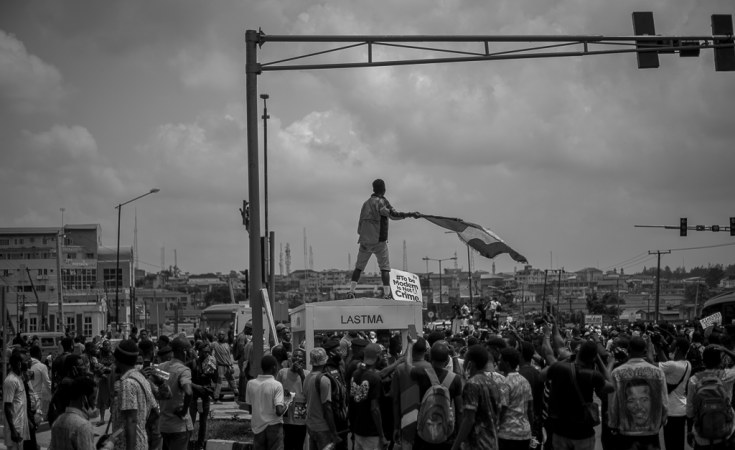Abuja, Nigeria — Nigeria has recorded more than 800 incidents of extrajudicial killings across the country in the last three years, according to the international human rights group Global Rights.
The Mass Atrocities Casualties report published by Global Rights says 848 extrajudicial executions took place in Nigeria between 2020 and June 2023, with 127 cases in the first half of this year alone. The human rights group said Nigerian citizens have been living in fear of brutality from law enforcement agents as a result.
"Since 2018, we have kept a tab on the mass atrocities across Nigeria," said Abiodun Baiyewu, executive director of Global Rights. "It cuts across issues like casualties of terrorist attacks, cult killings, communal clashes, extrajudicial killings; so, what you're seeing is the extraction of the number of people who have died through extrajudicial killings. And those were the least numbers, numbers we were able to verify."
Baiyewu says authorities must be held accountable.
"We seem to be running roundabout the same figures every year, with the exception of 2020 and 2022. But when you think about 127 people killed in the first half of 2023, and you think about the number of officers who have been sanctioned for these killings, then you know we're still very way off from the way things need to be dealt with," Baiyewu said.
The rights group said 271 and 253 people were killed in 2020 and 2022 respectively -- the highest numbers in the period reviewed.
The release of the report coincided with a three-year remembrance of the victims of police brutality in Nigeria.
In October 2020, thousands of people across Nigeria marched in protests known as the #EndSARS movement against the activities of the now-disbanded Special Anti-Robbery Squad, a unit accused of police brutality, including torture, killings and extortion.
The protests went on for days, until security forces cracked down on demonstrators at the Lekki toll gate in Lagos. Global Rights' report said 123 people were killed.
Nigerian authorities deny the numbers, but promised to investigate and punish offenders.
Aminu Hayatu, a conflict and crisis researcher at Amnesty International, says despite the government often denying casualty numbers, an attempt by Lagos state authorities in July to bury more than 100 people who died during the protests gives credence to the claims.
"There are a lot of issues happening underground which are not visible in the public spaces. This is a semblance of the truth of the matter," Hayatu said. "Amnesty International has written letters to the Lagos state government to conduct an investigation and bring out [a] report and respond to these allegations."
Amnesty initially said 12 protesters were killed at the toll gate.
This month, a Lagos state court sentenced a police officer to death by hanging for killing a lawyer during a patrol on Christmas Day. Activists welcomed the ruling and said it will serve as a deterrent to security agents.
Hayatu says police brutality has never stopped.
"The police are still responding to the cases of protests negatively. Amnesty International is still working and conducting a study on the state of human rights in Nigeria, which will be released at a later time. It will definitely reveal the nitty-gritty of some of these human rights issues," Hayatu said.


